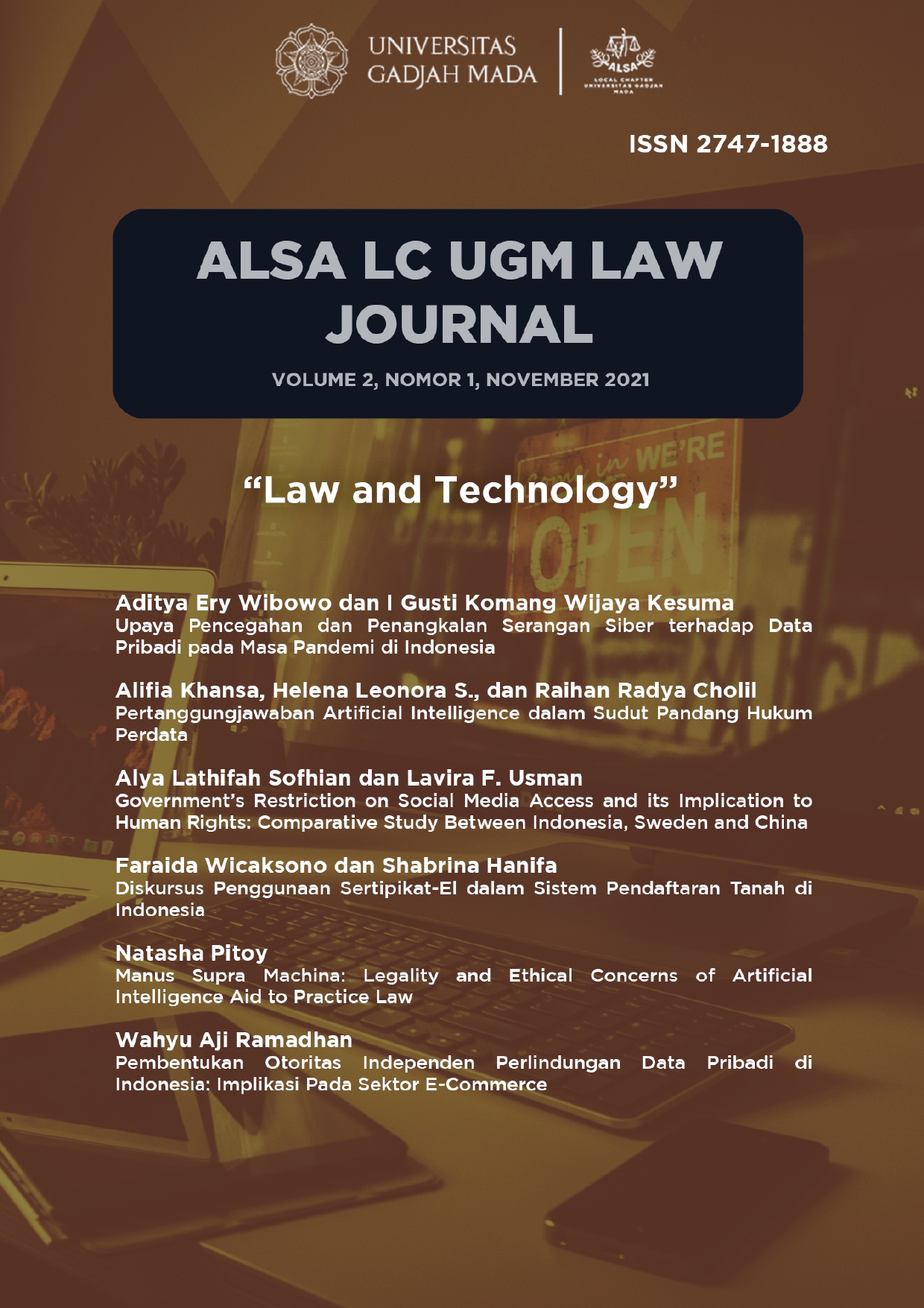Manus Supra Machina Legality and Ethical Concerns of Artificial Intelligence Aid to Practice Law
Abstract
Reaching the age of modern technology, Artificial Intelligence is no stranger to several sectors of business, such as the legal sector. However, despite its growing popularity and predicted growing demand, there is still no specific international nor any prominent and concrete regulatory framework for the utilization of Artificial Intelligence, especially for its use within the legal sector. This is a concerning matter as despite the growing Artificial Intelligence usage, there is also the severe issue of it’s unethical use. This article will attempt to comprehend and analyze further steps to be taken by stakeholders to solve the emptiness left by the non-existent legal framework for Artificial Intelligence as well as provide an insight on other aspects relevant to ensure future ethical use of the Artificial Intelligence generally and also within the legal sector.
Authors who publish with this journal agree to the following terms:
- Authors retain copyright and grant the journal right of first publication with the work simultaneously licensed under a Creative Commons Attribution License that allows others to share the work with an acknowledgement of the work's authorship and initial publication in this journal.
- Authors are able to enter into separate, additional contractual arrangements for the non-exclusive distribution of the journal's published version of the work (e.g., post it to an institutional repository or publish it in a book), with an acknowledgement of its initial publication in this journal.
- Authors are permitted and encouraged to post their work online (e.g., in institutional repositories or on their website) prior to and during the submission process, as it can lead to productive exchanges, as well as earlier and greater citation of published work.


